Nine To Noon for Wednesday 29 November 2023
09:05 End-of-life doctors warning over critical morphine stock running low

Photo: 123rf.com
Palliative care doctors are warning of a difficult five months ahead as stocks of the most used liquid morphine run out. Around 14 hundred people every month used the 1 mili-gram per 1 mili-litre formulation, which is an essential pain drug. But stocks are dwindling and expected to run out in December, due to the manufacturer, Pfizer, closing the factory in Australia that makes i Pfizer gave Pharmac two years' notice, but Pharmac says it has been unable to source an alternative. It says it should have resupply of the 1 miligram per 1 mililtre formulation from April next year, but in the meantime, doctors will have to give a double strength dose, which patients will have to manage. But end-of-life doctors say the situation is unacceptable, and they're concerned for patient safety. Kathryn speaks with Dr Delamy Keall Senior Medical Officer, Palliative Medicine at Palmerston North Hospital and Arohanui Hospice; Wayne Naylor, Chief Executive of Hospice New Zealand and Palliative care specialist from Pharmac's Analgesic Advisory Committee, Dr Catherine D'Souza.
09:20 Conservation projects on the chopping block
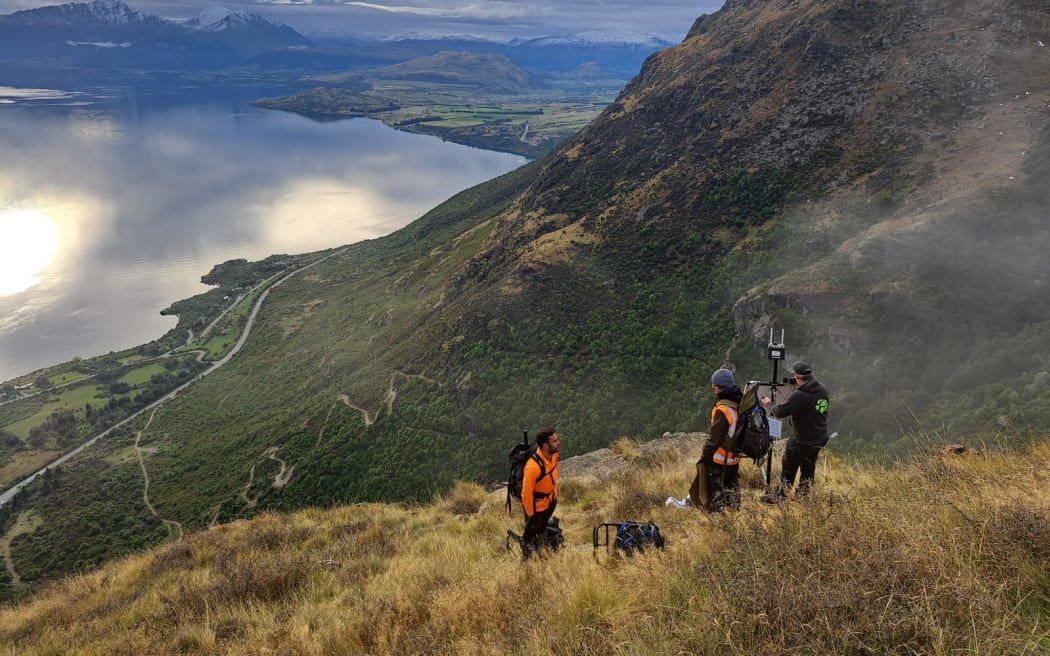
Photo: Southern Lakes Sanctuary
Hundreds of conservation projects hang in the balance as the clock ticks down on government funding. The $50 billion Covid-19 response fund was used to support businesses and the economy in the acute stages of the pandemic. Of that, $1b allocated in Budget 2020 went into conservation projects via Jobs For Nature. The stimulus package proved to be a lifeline for small tourist towns, where as many as half of all jobs disappeared when the borders closed. Since then, some 500 Jobs For Nature projects - employing 12,500 - have supported initiatives to put more than eight million plants in the ground, restore 4,500 hectares of freshwater, and bring two million hectares of land under pest control. It has also seen 3,000 people enter formal conservation-based training. But with funding set to end in June 2024, advocates say some projects should continue to be funded. PredatorFree NZ chief executive Jessi Morgan and Southern Lakes Sanctuary project director Paul Kavanagh speak to Kathryn.
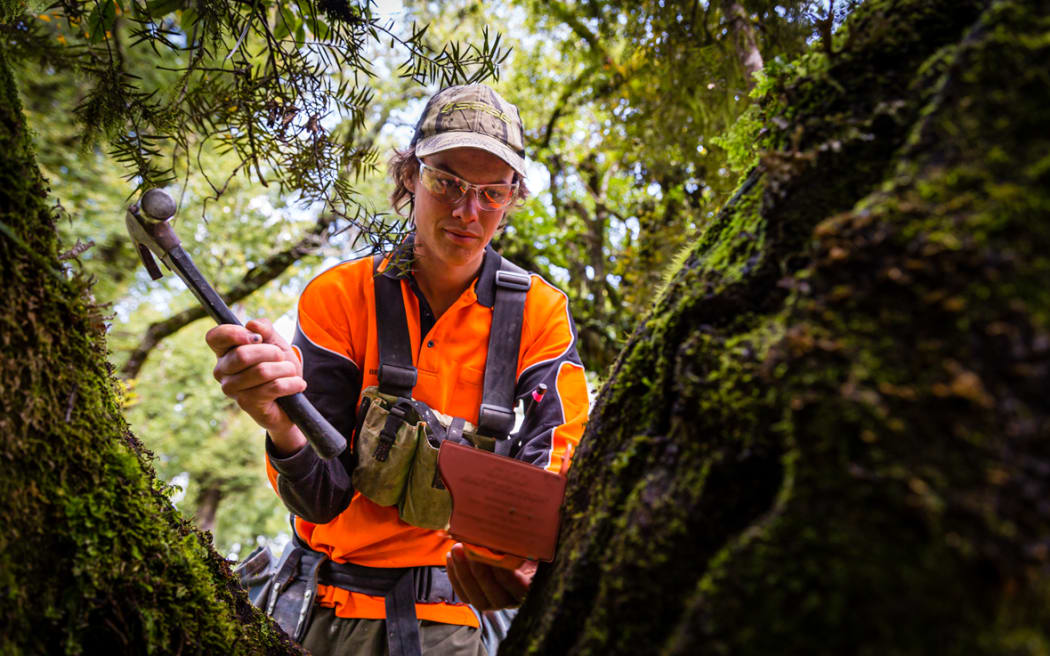
Apprentice Hugo Pearce at work as part of the Predator Free Apprenticeship Programme, funded by Jobs for Nature Photo: PredatorFree NZ
09:40 Fancy grabbing a gondola out to the airport in Auckland or Wellington?
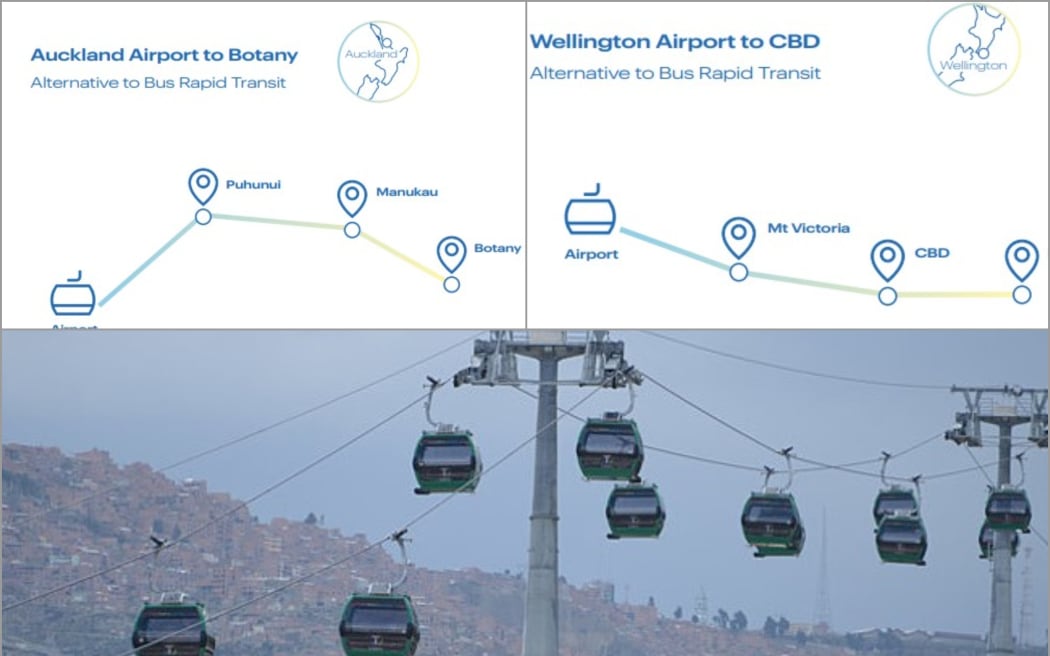
Images from La Paz, Bolivia, where urban cable cars already operate and graphics of two of the ten proposed solutions. Photo: Supplied
A report out this morning makes the case for urban cable cars to help ease congestion in our biggest cities. It was commissioned by aerial lift manufacturer Doppelmayr - which has made gondolas and ski-lifts all around the globe. The report identifies 20 sites where cable cars could work and of those, Doppelmayr is keen to pursue 10 - with an eye on Auckland and Wellington in the short term. The company says cable car networks are cheaper and faster than existing transport options. Doppelmayr New Zealand's CEO Garreth Hayman joins Kathryn to explain how the funding could work.
09:45 Australia: Vape crack-down, NSW introduces VAD, China recruits expat influencers
Australia correspondent Chris Niesche joins Kathryn to talk about the government's plans for a major crackdown on vaping, including banning single-use vapes from importation as well as tighter rules around flavours, nicotine levels and packaging. New South Wales has become the last Australian state to introduce voluntary assisted dying and China is recruiting expat influencers to spread the government's word to their communities.
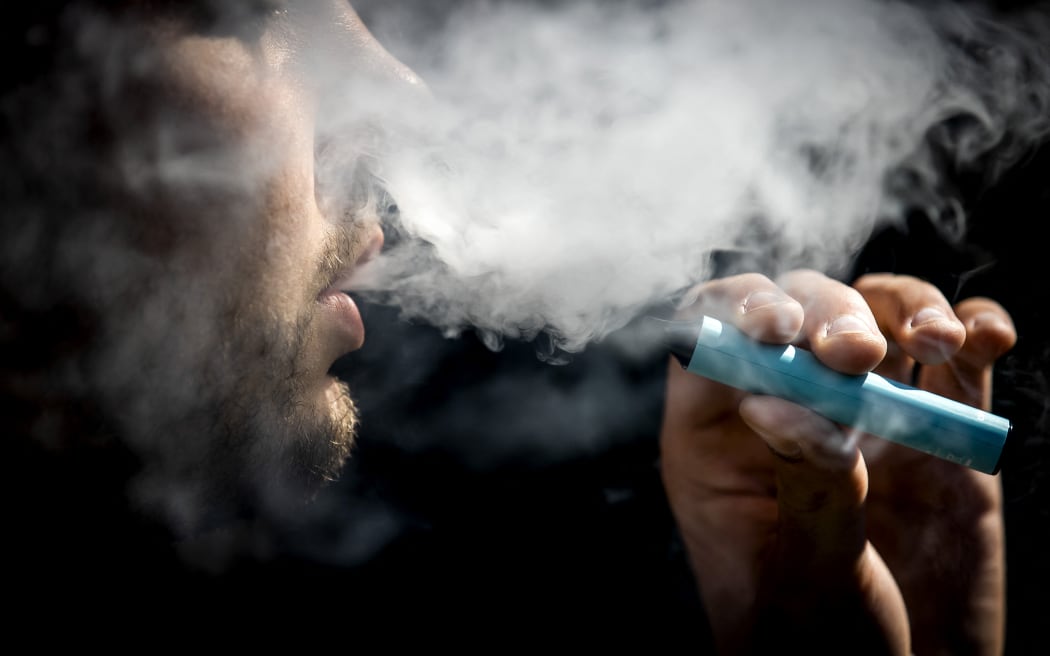
A man vaping Photo: AFP/ ANP MAG - Koen van Weel
10:05 Sarah Bax Horton on tracking down Jack the Ripper
135 years on from Jack the Ripper's heinous and brutal murders in London's Whitechapel, the case still fascinates. Between August 31 and November 9 1888 five women - Mary Ann Nichols, Annie Chapman, Elizabeth Stride, Catherine Eddowes and Mary Jane Kelly - were found stabbed and mutilated. But despite some quite specific witness descriptions and a big police response, their murderer was never brought to justice. In 2017, Sarah Bax Horton was investigating her family history and stumbled upon the fact her great-great-grandfather was a police officer who spent time working on the case. Her research led to medical records of a man called Hyam Hyams which had been sealed for 100 years. Now her book One-armed Jack: Uncovering the Real Jack the Ripper not only posits that Hyams was the man responsible, but includes an analysis of the killer and a reconstruction of how Hyams could've committed the crimes.
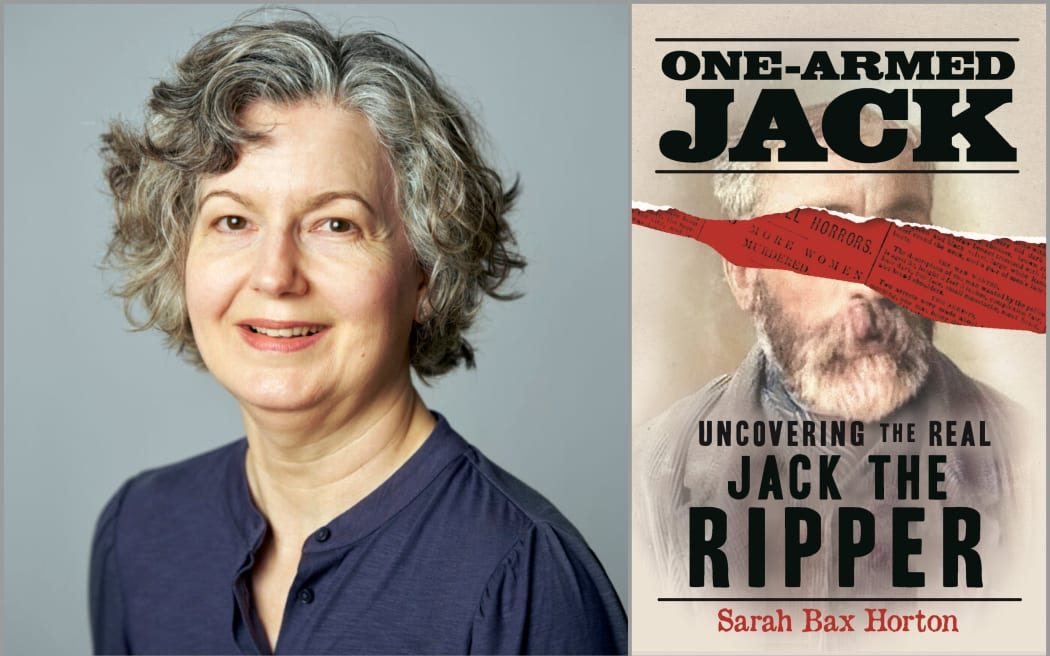
Photo: Supplied
10:35 Book review: Went to London, Took the Dog by Nina Stibbe

Photo: Pan Macmillan
Hannah August reviews Went to London, Took the Dog by Nina Stibbe published by Pan Macmillan
10:45 Around the motu: Kirsty Pickett in Te Anau
Kirsty joins Kathryn to talk about Te Anau recently hosting one of the largest and most complex emergency rescue exercises in the region, the weekend's annual Kepler Challenge mountain run and the axing of a highly controversial $1 charge to pee in the public toilet.
Kirsty Pickett is co-owner of the Southland App
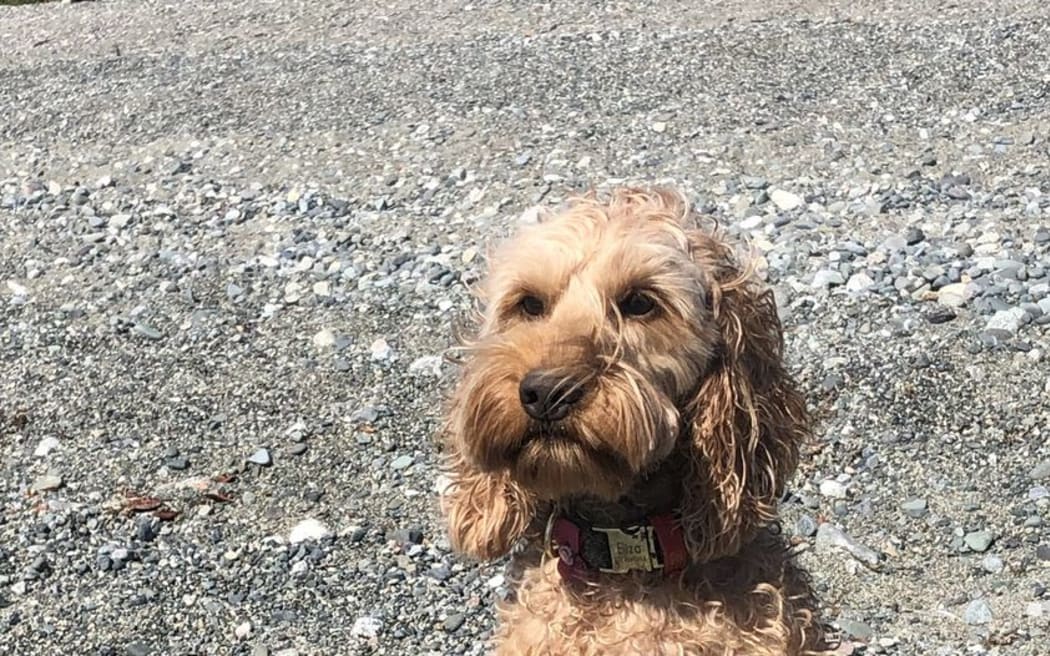
Te Anau's community is rallying to find Eliza, the missing Spoodle. Photo: Supplied
11:05 Music with Kirsten Zemke: Hawaiian vocal styles
Music commentator Kirsten Zemke joins Kathryn to talk about Hawaiian music and how it emphasizes the voice. She'll talk about why many songs feature falsetto or leo ki'eki'e (high voice) and where the slack key guitar originated from.
Kirsten Zemke is an ethnomusicologist at the University of Auckland's School of Social Sciences
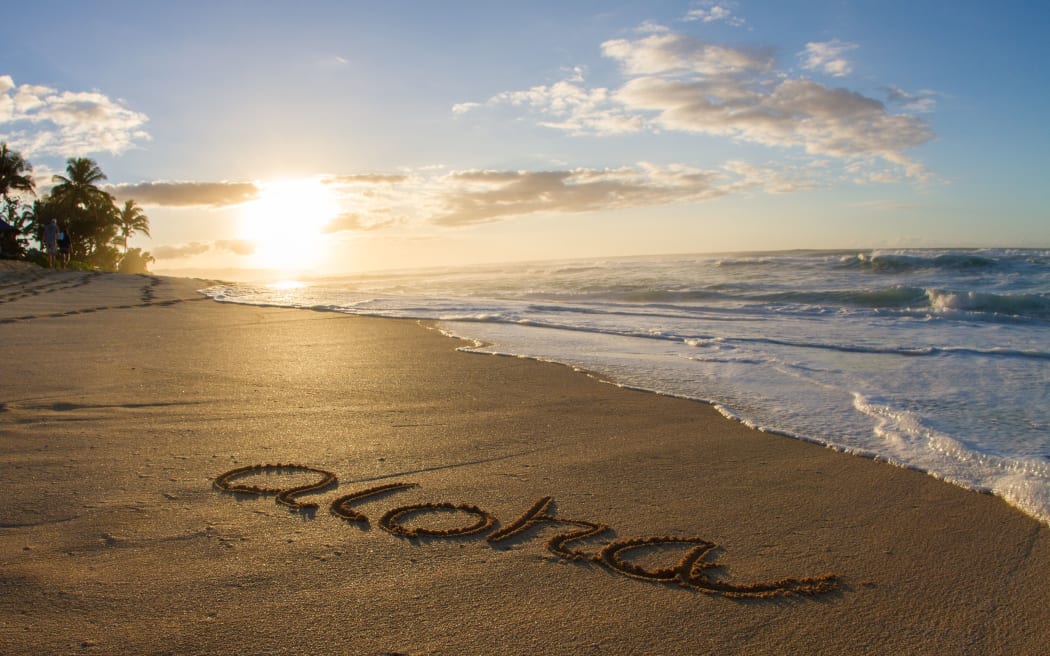
Aloha, written in the sand on beach, Hawaii Photo: Philip Waller Image Source, all rights reserved.
11:20 Recognising emotional immaturity in a partner

Photo: jackf/123RF
As Christmas approaches, the holiday season can be stressful for many people and psychologist Karen Nimmo has some advice for navigating the weeks ahead. She says it's an easier road for a couple if they both have emotional maturity. But what does that look like?
11:45 Science: Traffic & blood pressure, 200-year-old geology mystery
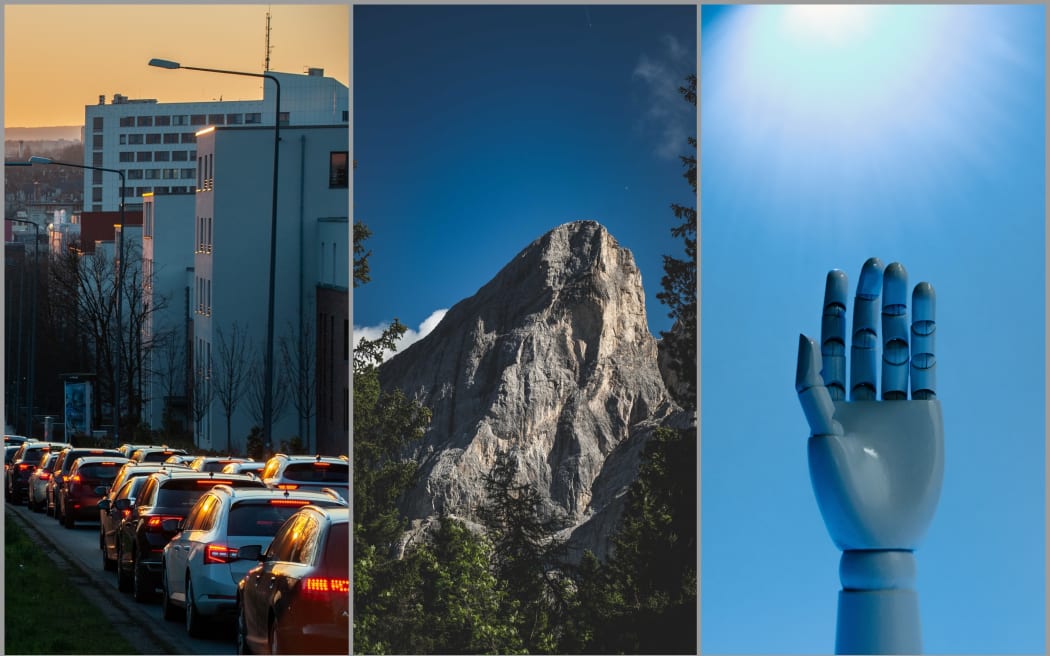
Photo: Pixabay
Science correspondent Laurie Winkless joins Kathryn to look at a new study into the effect sitting in traffic can have on your blood pressure - but it's not what you think. Inhaling unfiltered air pollution while you go nowhere can up your blood pressure and, more concerningly, keep it there. The mystery of how dolomite is formed has been answered by researchers at the University of Michigan and new technology is bringing a 'sense of touch' to robots and prosthetic limbs.
Laurie Winkless is a physicist and science writer
Music played in this show
Can - Vitamin C
Kraftwerk - The Model
Genoa Keawe - I Ali'i No 'Oe
Charles Kaipo - My Yellow Ginger Lei
Amy Hanaiali'i Gilliom - Haleiwa Hula
The Mākaha Sons - Ka Loke
Raiatea Helm - E Ku'u Sweet Lei Poina Ole









